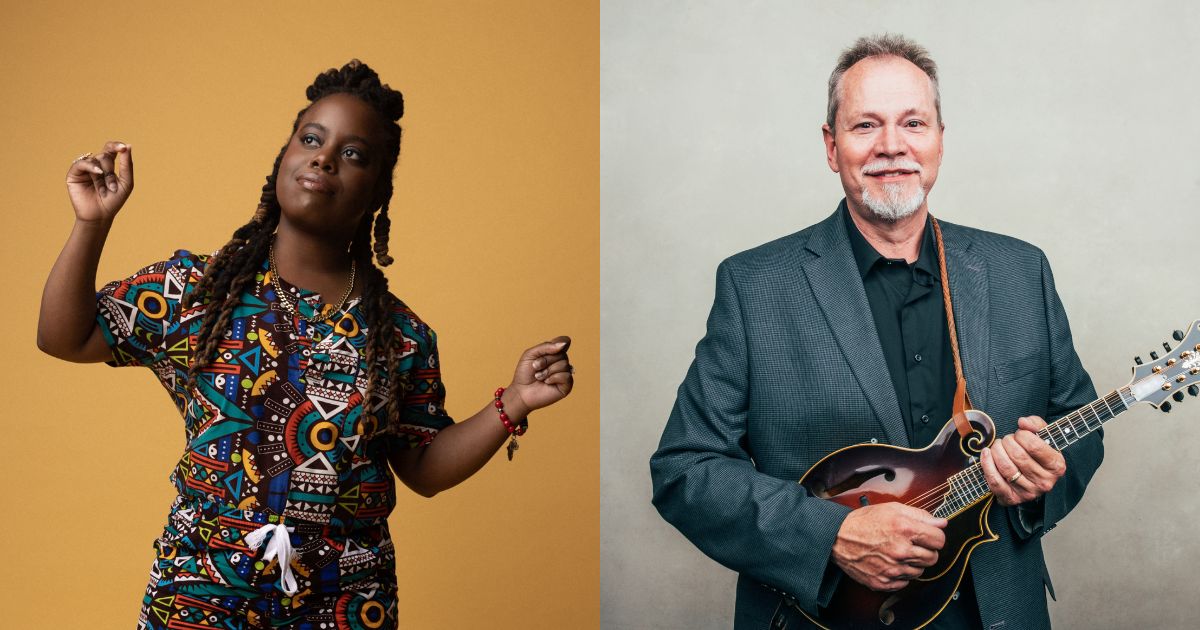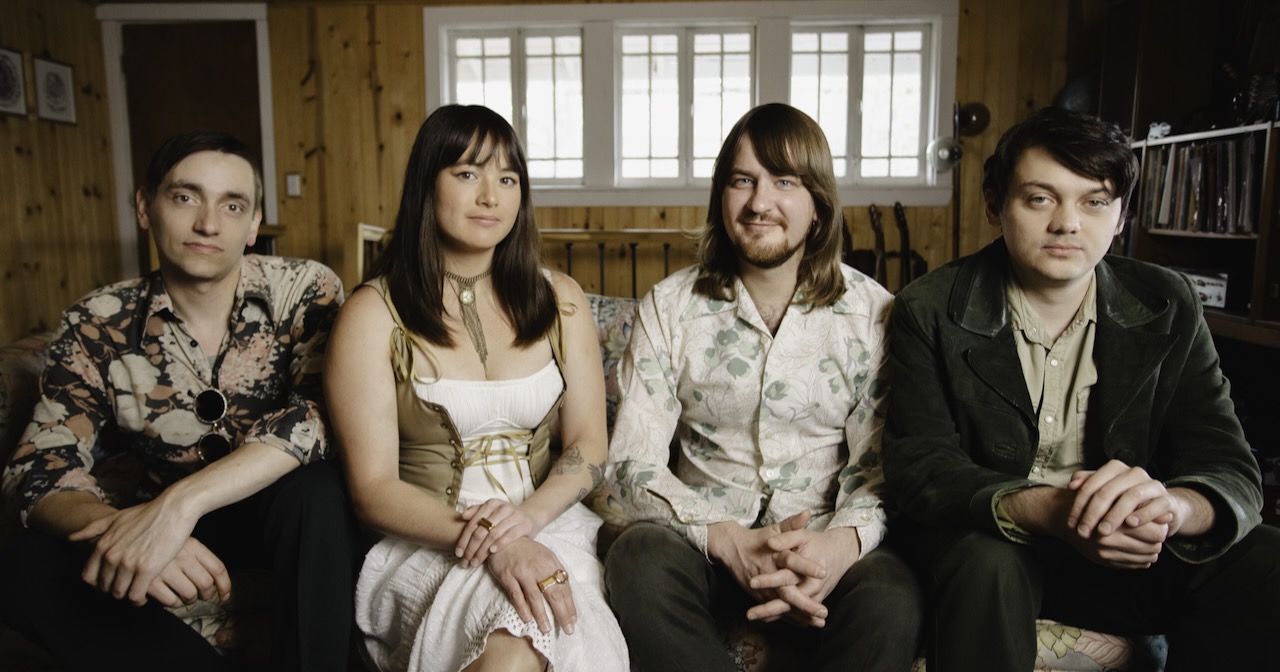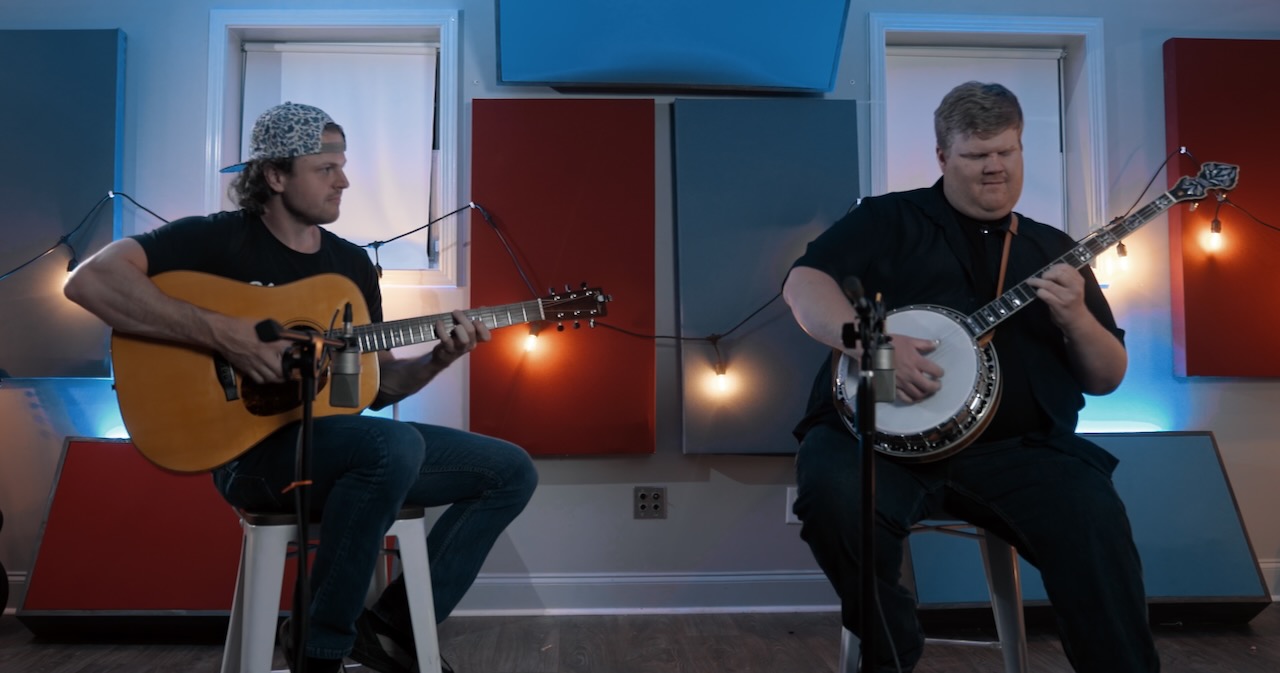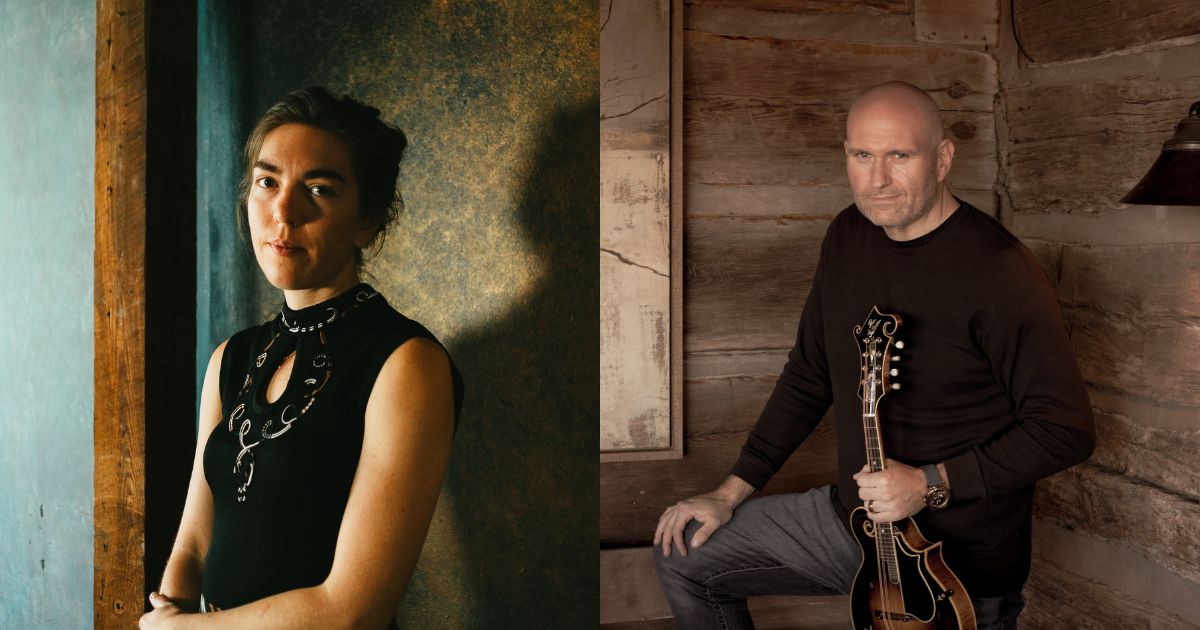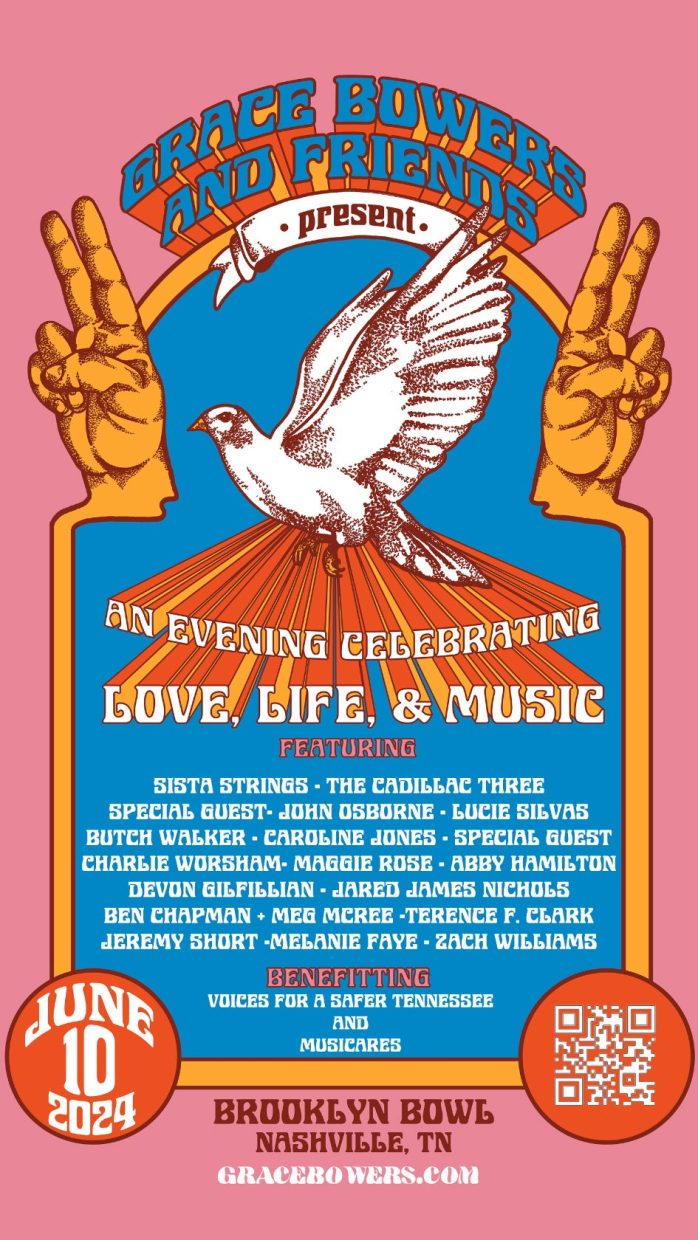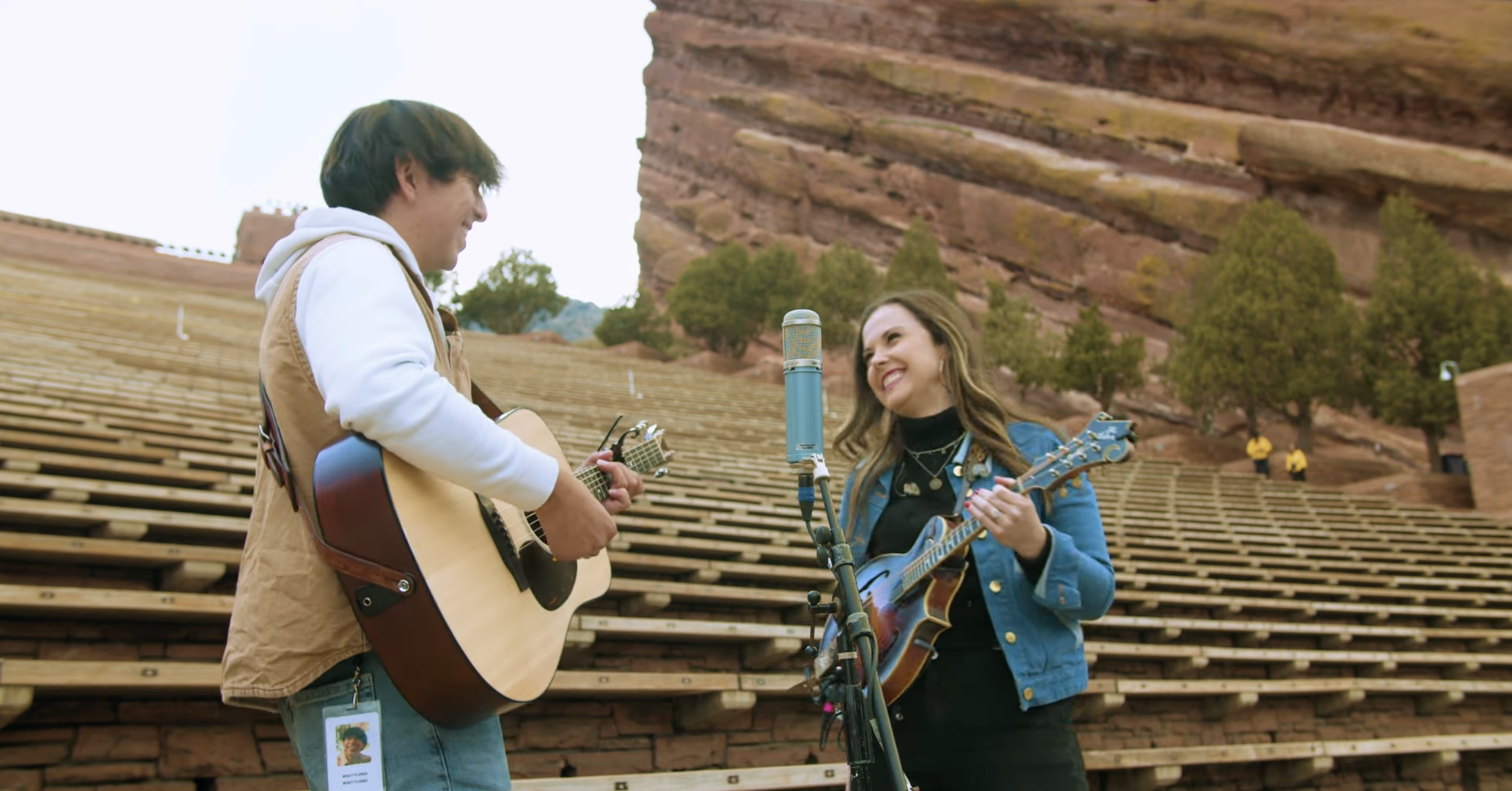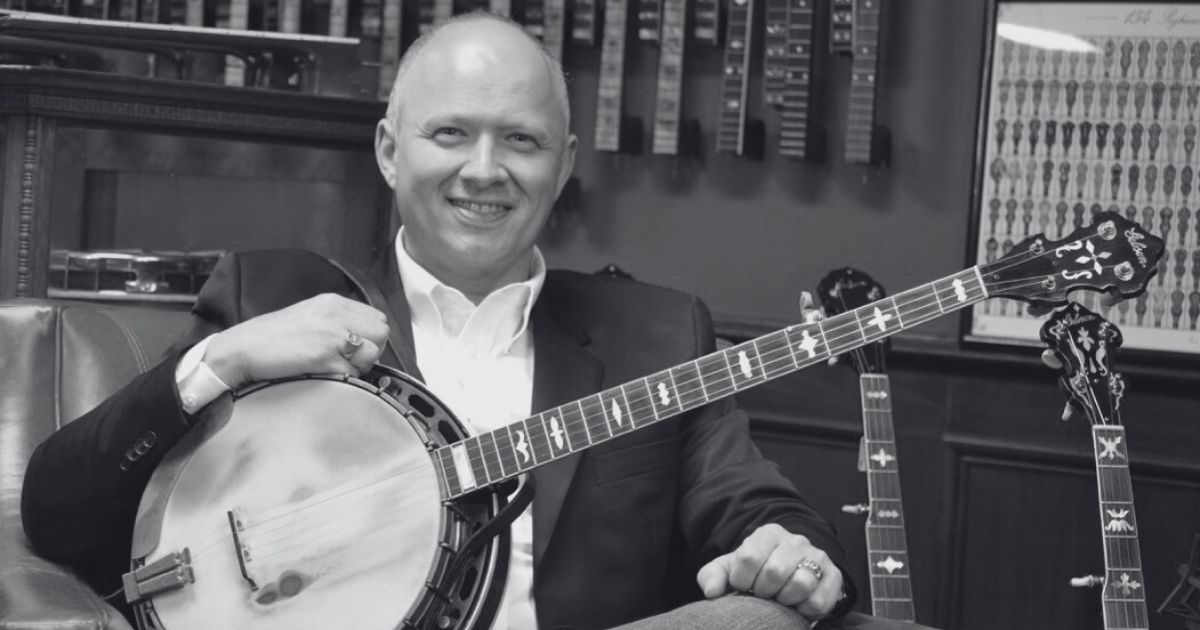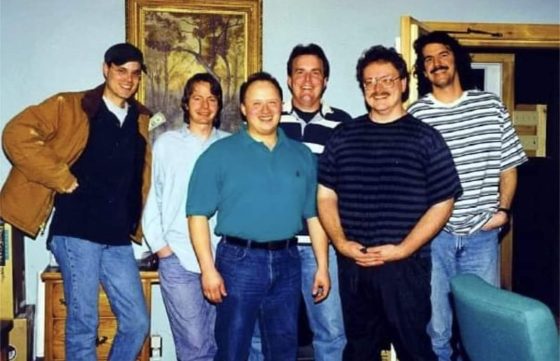I’m honored to create a playlist for BGS. I’ll share a Mixtape inspired by the theme of time and celebrating the here and now. I grew up in Virginia by the water and my musical life has been influenced by the seasons and the tides. Life (so far) has been a counterpoint of going with my gut and enjoying the moment while also considering intention and the bigger picture. But I’ve learned that I am more in touch with myself as an artist when I can remain in the present. The songs I’ve selected tend to resonate with my intuitive sense of joy and unconditional love – that deeply rooted part of ourselves that is free and unburdened.
It’s celebratory for me to share two tracks from my new album, Boarding Windows in Paradise, out now via Compass Records. Produced by Bill Wolf – who’s known for his work with Tony Rice and Grateful Dead – the album features the talents of Béla Fleck, Sam Bush, Stuart Duncan, Barry Bales, Ron Block, and a constellation of other bluegrass stars. The writing and recording process for the album brought me to a place of learning to create my own paradise through daily intention and action, and I’m grateful for this experience. – Rebecca Frazier
“High Country Road Trip” – Rebecca Frazier
I grew up on the water, so I love going with the flow and being taken for a ride. But I’ve got that philosophical side, where I’m also asking, “Where is this leading?” This song is meant to capture that moment of joy somewhere in the middle; that elevated feeling of loving the lightness of not knowing what’s around the bend and not necessarily trying to create a specific outcome.
“It’s a Great Day to Be Alive” – Darrell Scott
This song brings back great memories of living in Colorado and seeing Darrell Scott singing this one at music festivals out west. His song quickly became an anthem for savoring the present: “It’s a great day to be alive, the sun’s still shining when I close my eyes.”
“Sailin’ Shoes” – Sam Bush
This one is another anthem on the bluegrass festival scene. It’s about cutting loose and feeling liberated. When Sam Bush goes into his signature chop to kick it off, fans start to cheer like wild and dance in recognition. The freeing and soaring feeling of sailing – we definitely feel that when John Cowan joins in with his soaring vocals. As the lyric expresses, “Everyone will clap and cheer when you put on your sailing shoes…” Sam sings and plays it with abandon and you can’t help it but smile (or dance!) when you listen to this classic Little Feat cover.
“All I Want” – Joni Mitchell
“Applause applause, life is our cause.” Joni’s lyric speaks volumes about her expression of letting go. She sings about that feeling of dancing and unleashing herself in a dive bar, falling in love, and letting the best in herself emerge by forgetting about herself for a moment. “I want to have fun, I want to shine like the sun… I want to make you feel free.”
“Time in a Bottle” – Jim Croce
“I’d save every day like a treasure and then, again I would spend them with you.” This classic is a poignant reminder about the essence of time and what seems to have mattered most at the end. Croce sings about savoring time with a loved one and realizing that the metaphorical box of wishes and dreams can only be answered by memories of time spent with a loved one.
“Nick Of Time” – Bonnie Raitt
This song brings back powerful memories from the ’90s, when Bonnie Raitt received well-deserved acclaim as an artist after years of hard work as a blues musician. The message of time passing and realizing that we have almost missed a great life experience-but found that fruition in the nick of time-resonated with a wider audience. Her relaxed and soulful vocals portray the hopeful message in a calming way.
“Days Like This” – Van Morrison
In his relaxed and soulful way, Morrison sings about those rare worry-free days when the pieces effortlessly come together in a satisfying way: “When all the parts of the puzzle start to look like they fit, there’ll be days like this.”
“Cat’s in the Cradle” – Harry Chapin
This classic may be a tear-jerker, but it’s also a celebration of time. We’re reminded by Chapin to spend meaningful time with our loved ones now and not to wait for a speculative future time when our “schedule” is free. The lasting image of an adult son who’s now too busy for his dad – after spending years as a small child asking his dad to spend time together – is a powerful reminder about life’s priorities.
“Thunderclouds Of Love” – Tony Rice
Classic, powerful Tony Rice at his finest. This description of a thunderbolt moment can light up any heart, and Tony’s guitar solo takes us there with flashy, bluesy fireworks. Jimmy Headrick’s lyrics set the scene for Tony’s soulful and punchy baritone vocals: “I have been praying four nights on end for someone who could make me live again, and all at once from the darkness of my heart they came to light.”
“Alabama Pines” – Jason Isbell
This one snuck onto this list, because it always brings me into the present moment. Isbell’s writing and singing is just that good. Whatever you were thinking about or worrying about, it all tends to go out the window. Suddenly you’re driving in Alabama and seeing all of the imagery he describes, feeling all of the emotions he expresses.
“Help Me Make It Through the Night” – Kris Kristofferson
Kristofferson’s is my favorite version of this classic and I’ll admit that he also happens to be my celebrity crush. While he’s portraying relishing this moment, this night, I think many women are wondering if he really needs to ask for help with that cause? In all seriousness, he does pull us into the present with his poignant lyric: “Yesterday is dead and gone, and tomorrow’s out of sight.”
“Duck’s Eye” – Charles Butler
Banjoist Charles Butler is one of my favorite composers and this tune pulls me into an effortless feeling of gliding over an oceanic vastness. The call and response melodies bring the listener into a trance-like state, and the simple melody pulls the listener to that perfectly placed “eye” of the composition, echoing the David Lynch reference of Butler’s inspiration.
“Make Hay While the Moon Shines” – Rebecca Frazier
When I wrote this song with Bob Minner and Jon Weisberger, we wanted to express the feeling of unleashing ourselves and savoring the moment once the moon rises. We’ve all been told to “make hay while the sun shines,” but it’s just as important to put down our work and allow ourselves to be free and true to our inner selves.
Photo Credit: Scott Simontacchi

